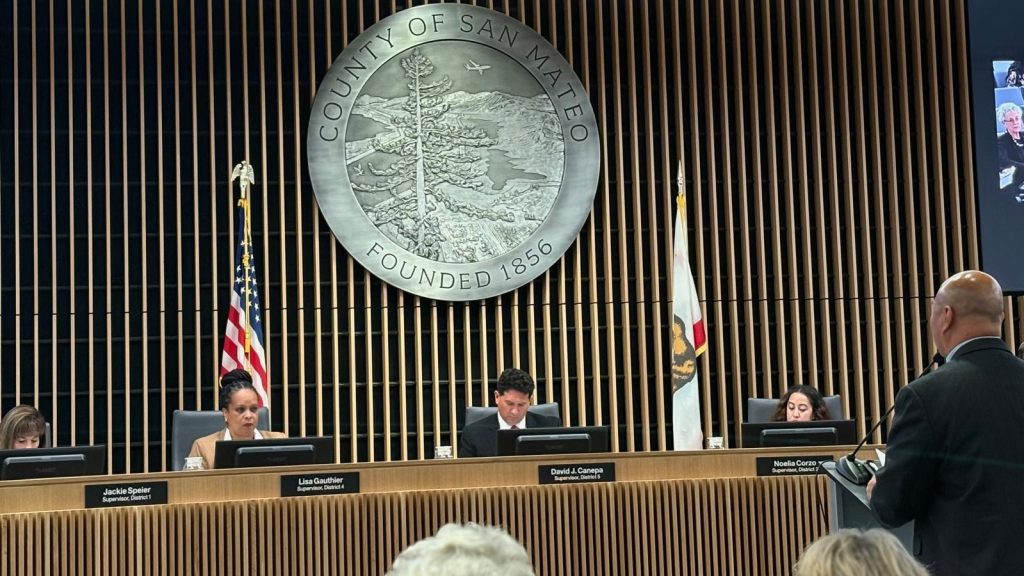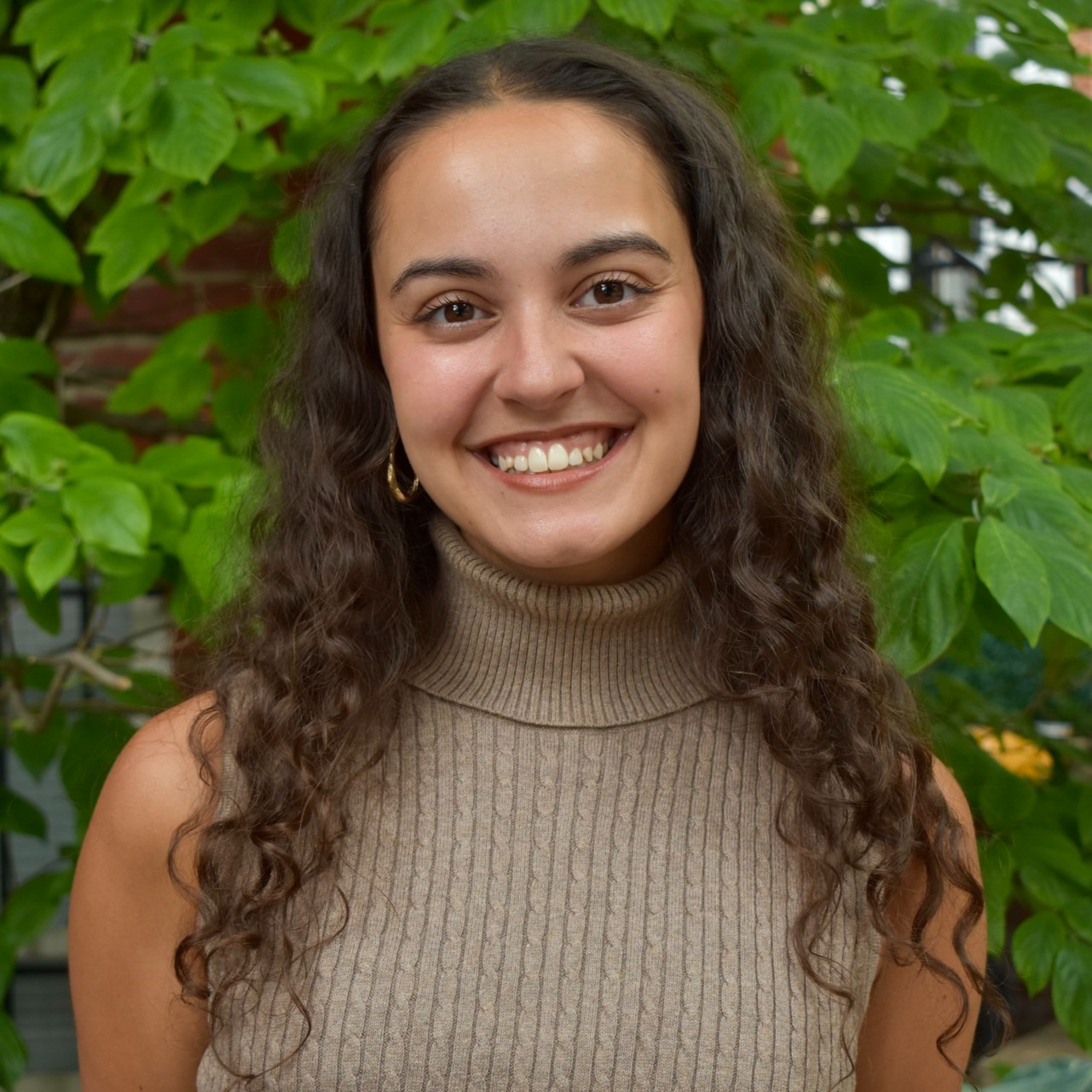
Three finalists vying to become the next San Mateo County Sheriff made their case to residents on Nov. 10 with former San Francisco Police Assistant Chief David Lazar stressing his experience leading a large agency, Interim Gilroy Police Chief Kenneth Binder emphasizing his history helping neighboring Santa Clara County navigate a similar, post-scandal transition, and Solano Community College Police Chief Brian Wynn Huynh Travis citing his hometown roots.
The public forum allowed residents to share with the Board of Supervisors who they think should lead the Sheriff’s Office. Two days later, on Nov. 12, the Board will announce their pick for Sheriff.
Over 85% of the 65 public comments supported Lazar, the overwhelming majority of which were not made by San Mateo residents. Dozens of San Franciscans traveled to San Mateo to endorse Lazar for the next County Sheriff, while Travis and Binder each received only three local endorsements.
“I’m unsettled by what strikes me as an overtly organized and heavy-handed effort from people outside of San Mateo County to influence our county’s sheriff selection process by bringing in people from San Francisco to endorse Mr. Lazar,” said Belmont resident Beth von Emster.
Aisha Baro, a resident of Half Moon Bay, agreed, “I urge this board to look at all the candidates’ objectivity and look beyond this campaign that’s been put together today.”
The majority of Lazar’s endorsements came from San Francisco law-enforcement and civic leaders, including several who worked under him during his 33-year SFPD career.
“I would not be the president of our union without him, Louis Wong, president of the San Francisco Police Officer Association, said. “He’ll listen to your ideas. He will implement it. If something doesn’t work, he’s just not gonna stick with it.”
Del Seymour, Code Tenderloin founder and co-chair of San Francisco’s Local Homeless Coordinating Board, said “He and I have walked every street in the Tenderloin.” “The unhoused people, when he walks through the community, they call him David,” Seymour said.
Supporters ranged from business, police, and labor leaders to several LGBT and Asian-American organizations.
San Mateo resident Dana Johnson said she noticed only Lazar spoke of the LGBTQ community when candidates were asked how they have collaborated with county organizations, nonprofits, and community groups.
“He has community work that he’s done with the community to help include us and make sure that visibility is seen and respected,” he said.
Several speakers cited a 2025 report that Lazar, while on duty in an unmarked car, activated his police lights and drove into oncoming traffic. Another vehicle collided with his car when making an illegal turn, and while was found not guilty, the SFPD’s report found that his driving “contributed to the collision.”
“That incident made me concerned about whether he’s the right fit for our county,” von Emster said.
Lazar later told FOX KTVU the crash did not play a role in his decision to retire this summer after three decades on the force. “I’m not deterred by any criticism or challenges,” he said.
Comparing the Candidates
Lazar offers the broadest executive-level experience. As SFPD’s Assistant Police Chief, he was responsible for 1,700 employees, roughly double San Mateo’s, and an $800 million SFPD budget.
Not all of Lazar’s police experience is directly transferable to work in a sheriff’s office, which manages county jails, secures courthouses, and serves unincorporated areas without police departments. “It’s not lost on me that I’m an outsider,” he said. “I want to be the last outside sheriff that comes in.”
Binder spent 27 years with the Santa Clara County Sheriff’s Office, where he oversaw a $551 million budget and a county jail system with approximately 3,000 inmates.
Binder described correctional reform as his top priority, citing lessons from his tenure during the corruption scandal that toppled Sheriff Laurie Smith in 2022. Smith was found guilty of six counts of misconduct by a civil grand jury for fast tracking concealed carry weapons permits for political supporters.
Some residents said Binder’s experience in helping to stabilize a sheriff’s department after a corruption scandal demoralized staff and eroded public trust, is precisely what the county needs.
“Kenneth Binder was in a position of command and maintained his integrity and credibility before, during and after the rehabilitation of the Department to a position of trust,” wrote San Mateo resident David Vallerga in a public comment.
During the meeting on Nov. 6, Board Supervisor Jackie Speier noted his “difficult situation” as acting sheriff after Smith’s abrupt departure from office. She asked if Binder saw any parallels between Santa Clara’s crisis and the current situation in San Mateo County.
He described helping the incoming sheriff, Bob Johnson, “acclimate into the office” and restore the department’s stability. “It was a very successful partnership,” Binder said. “He came from the outside, and I worked with him to rebuild trust internally and externally.”
Binder emphasized his integrity under immoral leadership. “When I left the organization, I had a stellar reputation,” he said. “The position is not about power or pride or being able to tell people what to do. It’s about serving those underneath you.”
Travis, a Vietnamese refugee, Hillsdale High graduate, and Army Major, framed his candidacy around “homecoming and fulfillment of purpose.” Critics questioned whether his campus policing background prepared him to lead an 800-person agency. In response, Travis pointed to his leadership experience in other fields, namely in the military.
“ I’ve been a proven leader. I have led a company of soldiers for the US Army in a very complex combat environment in Iraq and I brought them home safely,” he said.
He also emphasized his deep-seated knowledge of and personal ties to the Bay Area as the only San Mateo local up for consideration.
After the supervisors selected the finalists on Nov. 6, Speier said she voted for Travis because, “he had a long history in San Mateo County, had worked in the sheriff’s department, and had a life experience I think would be very helpful, and a county where…the Asian population is 36%.”


